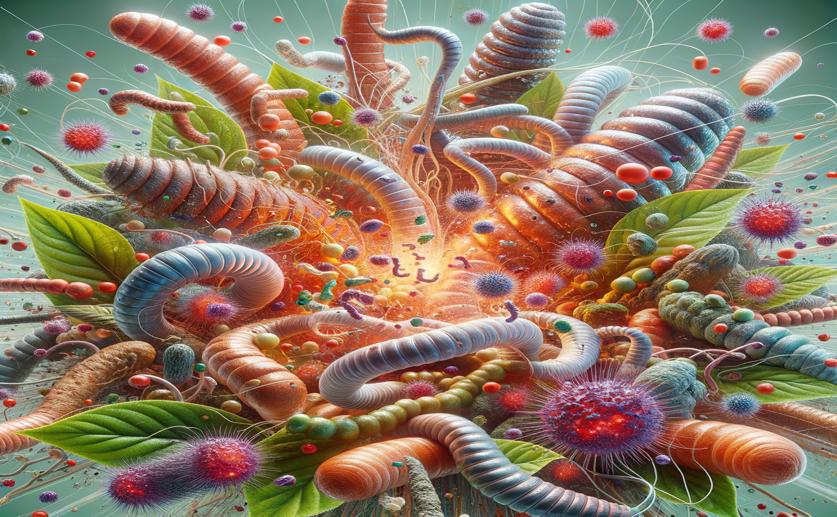
How Plant Extracts Affect Two Stubborn Gut Parasite Types
Jim Crocker
5th April, 2024

Image Source: Natural Science News, 2024
Key Findings
- Study at Pomeranian Medical University found natural extracts can fight common gut organism Blastocystis
- Garlic and turmeric effectively inhibited Blastocystis subtype ST3; horseradish and turmeric were best against ST7
- These findings suggest natural treatments could be an alternative for managing Blastocystis infections
References
Main Study
1) The influence of plant extracts on viability of ST3 and ST7 subtypes of Blastocystis sp.
Published 3rd April, 2024
https://doi.org/10.1186/s13099-024-00613-z
Related Studies
2) Epidemiology of Blastocystis Infection: A Review of Data from Poland in Relation to Other Reports.
3) Interactions between a pathogenic Blastocystis subtype and gut microbiota: in vitro and in vivo studies.
4) Gut bacteria influence Blastocystis sp. phenotypes and may trigger pathogenicity.
5) Blastocystis: to treat or not to treat..



 21st February, 2024 | Jenn Hoskins
21st February, 2024 | Jenn Hoskins